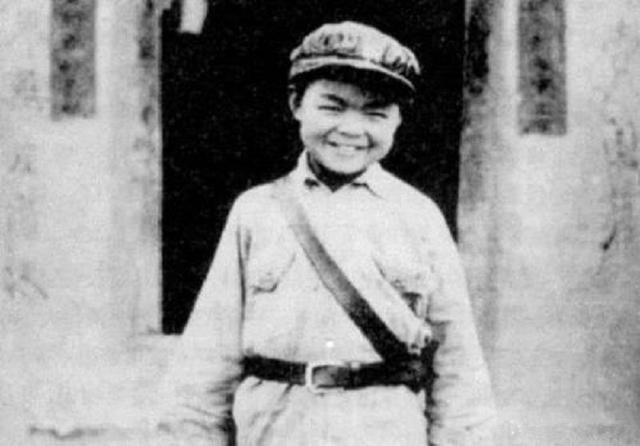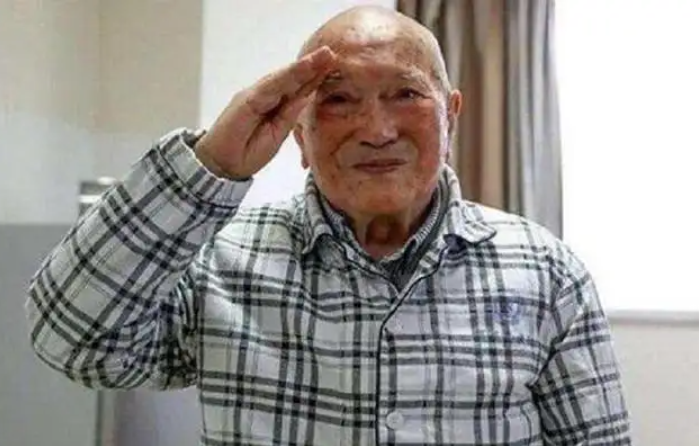The youngest Red Army soldier
2022-06-24

“First you need to get the gun loaded, aim at the enemy and then pull the trigger. Bang! The enemy was killed by you.” He Mangu let his son hold the pistol and showed him how to use it.
To better support the armed revolution led by her elder brother He Long, He Mangu and her elder sister He Ying went to Yulin Village to help to recruit soldiers and store up grain. She entrusted her children to relatives and friends in different villages to take turns looking after them. She would visit them sometimes in her spare time.
He Mangu had never thought that her teaching was the most loving protection from a mother and the most painful farewell to his son.
After Sangzhi Uprising, the Fourth Army of the Workers’ and Peasants’ Revolutionary Army made an east foray into Shimen County and the troops stationed in Sangzhi County was encircled by the enemy. In a village near Luoyu, He Mangu and He Ying lost contact in the battle against local civil corps led by Liu Ziwei. In mid-August of 1928, He Mangu, who had shifted the battlefield to the Peach Creek, was arrested and sent to Sangzhi County overnight. The enemy interrogated her for the information about the whereabouts of He Long and He Ying, the action plans of guerrillas as well as the hiding places of the wounded and weapons time after time. In the face of the enemy’s torture, He Mangu would rather die than surrender, and no word on the Party or the Red Army had passed her lips.
Tied up with ropes, He Mangu was sent to the school yard in Sangzhi County on September 19. She was stripped of the clothes and strapped onto a cross of wood. “Cramp down on the local tyrants and wicked gentry, and overthrow the Kuomintang reactionaries,” she shouted at the end of her life without tears or sorrow. The dehumanized thugs stabbed her to death with bayonets and cut off her breasts. He Mangu died bravely in the battle for the revolution when she was 30 years old.

On that day, Xiang Xuan lost his mother at the age of 3.
After He Mangu’s death, He Ying took back her three children. “Don’t cry. Everything will be fine. I will be your mom,” she said to Xiang Xuan and hugged him tightly.
In the spring of 1933, the guerrillas led by He Ying moved to the mountains of Taiping Town, Hefeng County, Hubei Province. On May 6, the guerrilla camp was suddenly encircled by the enemy due to the betrayals from the local peasant association. As a sharpshooter famous around West Hunan, He Ying who helped the team to break out, had run out of ammunition and food. She was shot once in the leg, twice in the abdomen with blood bleeding out from the lower abdomen. He Ying knew that her life had come to an end. With great pain, she stuffed her intestines back into her broken stomach and handed the bundle tied to her waist for years to Xiang Xuan who was just 7 years old at that time. There were two rings, five silver coins and a small pistol in the bundle. He Ying urged him to climb through the window and catch up with the guerrillas along the path in the back mountain.
Seeing his aunt covered in blood, Xiang Xuan run with tears down. “Don’t cry. Turn to the Red Army and look for your uncle,” He Ying shouted after him.
On that day, He Ying died and He Wumei was killed. The enemy cut off their heads and hung on the gate of Sangzhi for public display.
On that day, Xiang Xuan lost his another mother, He Ying, at the age of 7.
Nowadays, children are still spoiled by their parents at the age of 7, but Xiang Xianuan had witnessed his mother He Mangu and his aunt He Ying killed in bloody clashes. He had no choice but to run for his life at the age of 7. Xiang Xuan fired his first shot with the pistol left by his mother at the enemy who came after him, and fled from Dongchangwan Village.
The day marks the death of He Ying. The day also marks the start of Xiang Xuan’s revolutionary journey.
After the liberation in 1949, the General Political Department of the People’s Liberation Army and Chengdu Military Area Command both agreed that Xiang Xuan joined the army from this day, thus becoming the youngest Red Army soldier.
From Hefeng County of Hubei Province to the east of Guizhou Province, there are several counties. Across hills and rivers, Xiang Xuan finally found his uncle, He Long.
In November 1935, the second and sixth corps of the Red Army started the Long March from Sangzhi County, Hunan Province. Xiang Xuan also embarked on the Long March with the troops, during which they climbed snow-capped mountains and crossed the meadows day and night with starvation. And the army made a strategic shift to Northern Shaanxi Province and advanced into the southwest of China. Xiang Xuan had 26 wounds and there is still shrapnel in his body.

In the face of the massacre organized by the enemy, Xiang Xuan’s family laid down their lives for revolution. In the face of the threat of death, the 7-year-old Red Army soldier inherited the family tradition and survived the ordeal.


